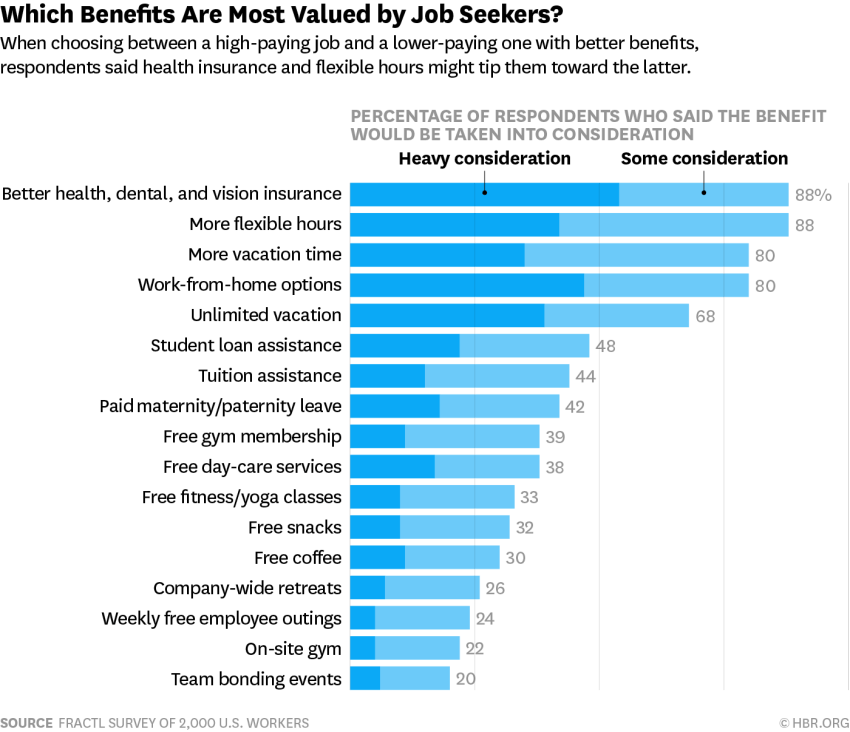Employee benefits trends to watch

Time to boost your pool of applicants! Research shows that competitive perks can be enough to sway quality applicants away from higher paying jobs.
Benefits such as…
- Work-Life Balance Is More Attractive Than Trendy Perks
Forget about ping pong table, nap corner, and all the unnecessary “perks”, flexible work scheduling is one of the most desired benefits right now. According to a recent survey by the Harvard Business Review, benefits that prioritize work-life balance are the second most valued employee benefit following medical benefits. Allowing your employees to work-from-home. or letting them choose their own hours as long as work gets done can give you an edge in hiring especially in the tech industry.
- More Personalized Benefits (Mass Personalization)
One size doesn’t fit all, especially in a multi-generation workforce. Employees are looking for benefits that can tailor to their lifestyle. For instance, younger workers might be looking for student loans repayment help or further education sponsorship; while new mothers and fathers would prefer paid maternity or paternity leave and flexible working hours. Older employees would be more concerned about the medical benefits and retirement planning. When drafting benefits packages, companies must take factors into considerations, better with the help of big data.
- Wellness Programs
It’s not a surprise when personal well-being is one of the greatest concerns of workers. 8 hours (or more) at the desk is not exactly the healthiest habit, i.e. research has shown that those who spend four or more hours sitting per day have a 125% increase in heart disease risk, and a 50% increased risk of death. This is why many companies today include wellness programs as part of their benefits package or even onsite gym, if you don’t have the budget, you can also provide yoga classes, meditation sessions, and healthy snacks.
So if you think a higher salary will make up for a benefits package that fails to prioritize work-life balance, think again.





